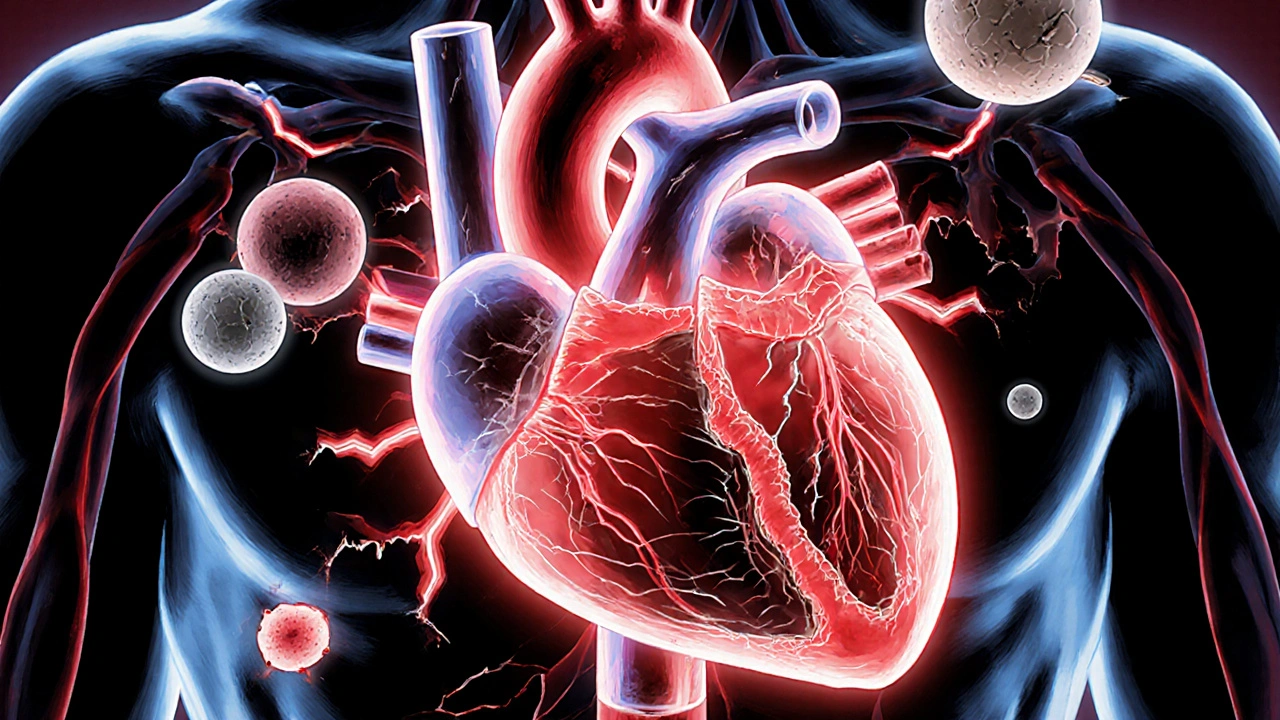Torsades de Pointes: What Causes It and Which Medications Trigger This Dangerous Heart Rhythm
When your heart’s electrical system goes off track, it can trigger torsades de pointes, a specific type of dangerous irregular heartbeat that can lead to sudden cardiac arrest. Also known as polymorphic ventricular tachycardia, it’s not just a random flutter—it’s a medical emergency that often starts with something as simple as a new prescription or a missed dose of potassium. This rhythm doesn’t come out of nowhere. It’s usually tied to QT prolongation, a delay in the heart’s electrical reset after each beat, which makes the muscle vulnerable to chaotic signals. Over 400 medications—from antibiotics to antidepressants—can stretch out that electrical reset time, turning a routine treatment into a risk.
It’s not just drugs. Low potassium, low magnesium, or low calcium can set the stage too. People on diuretics, those with eating disorders, or anyone recovering from severe illness are at higher risk. And if you’re already taking something that affects your heart rhythm—like certain antiarrhythmics, antipsychotics, or even some antihistamines—adding another QT-prolonging drug can push you over the edge. You might not feel anything at first. Then comes dizziness, a racing heartbeat, or worse: fainting without warning. That’s when torsades de pointes can spiral into ventricular fibrillation and stop your heart.
What makes this so tricky is that it often hides in plain sight. A doctor prescribes a common antibiotic for a sinus infection, you start feeling off, and you blame it on the illness. But if your QT interval was already stretched from an old medication or a genetic quirk, that new drug could be the trigger. That’s why knowing your meds matters. If you’ve ever had unexplained fainting, a family history of sudden cardiac death, or you’re on more than three prescriptions, ask your pharmacist or cardiologist to check your drug list for QT risks.
Below, you’ll find real cases and practical guides on how common medications—like rivaroxaban, trazodone, and even turmeric supplements—can quietly affect your heart rhythm. These aren’t theoretical warnings. They’re stories from people who noticed something was wrong before it was too late. You’ll also learn how to recognize the early signs, what blood tests to ask for, and how to talk to your doctor about safer alternatives. This isn’t about scaring you. It’s about giving you the tools to stay in control of your heart health, one pill at a time.
Antipsychotics and QT-Prolonging Drugs: What You Need to Know About Heart Risks
Combining antipsychotics with other QT-prolonging drugs can trigger dangerous heart rhythms. Learn which medications raise the risk, who's most vulnerable, and how to stay safe with simple monitoring steps.
learn more